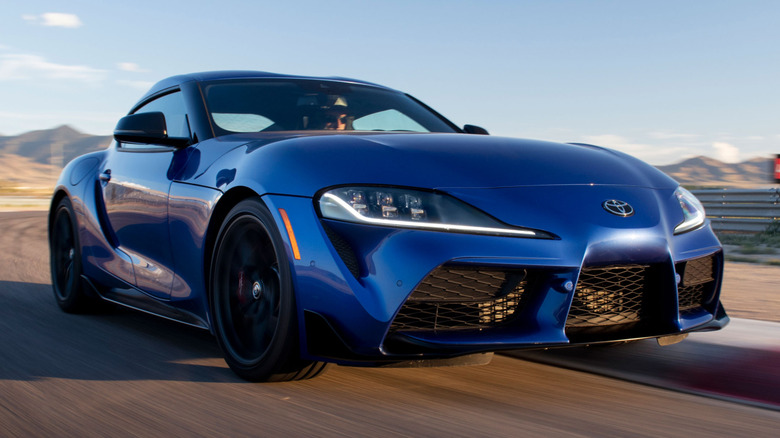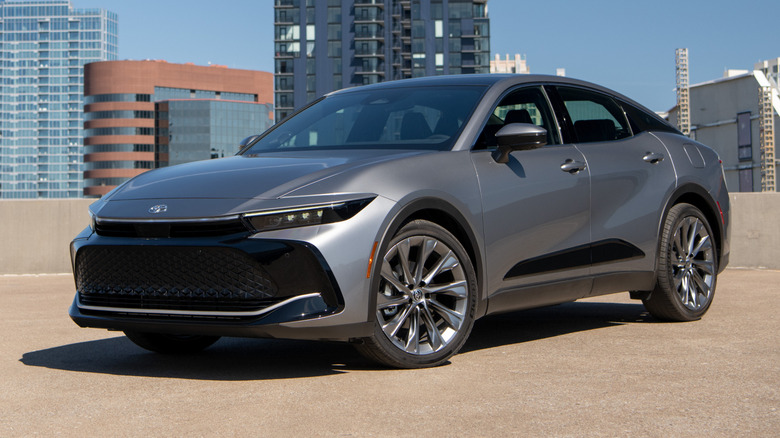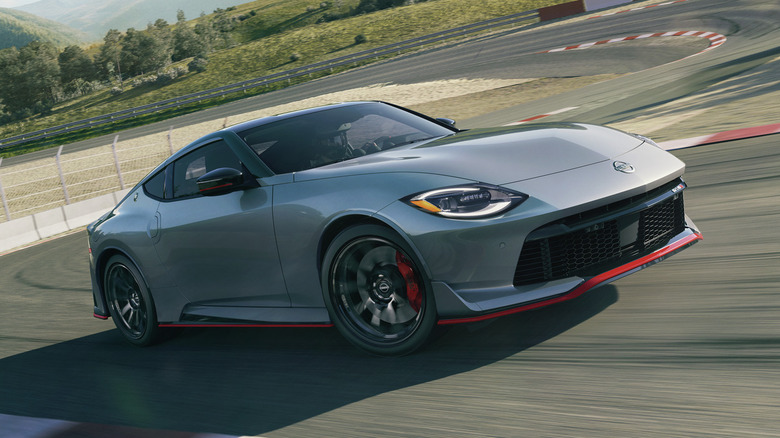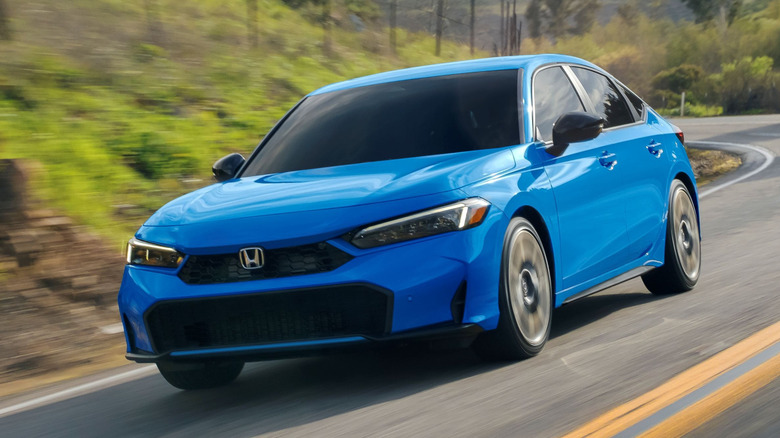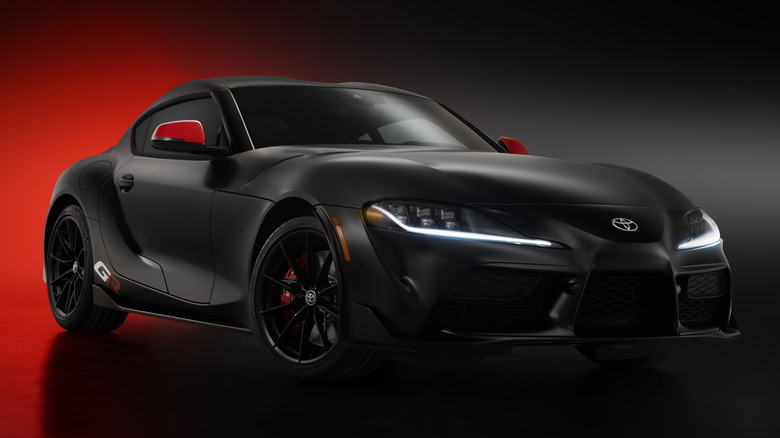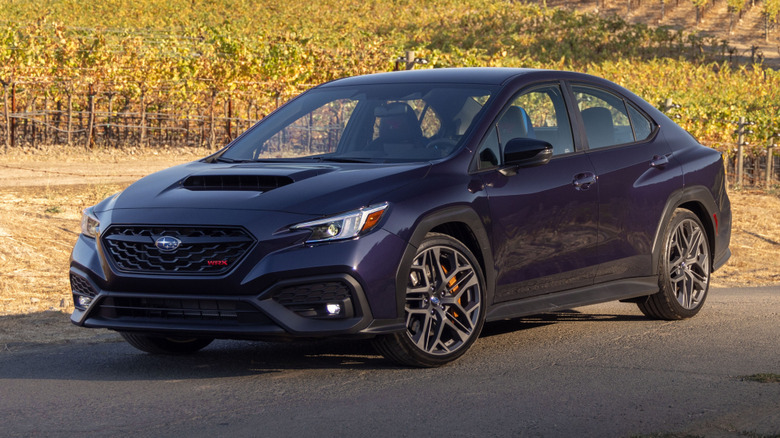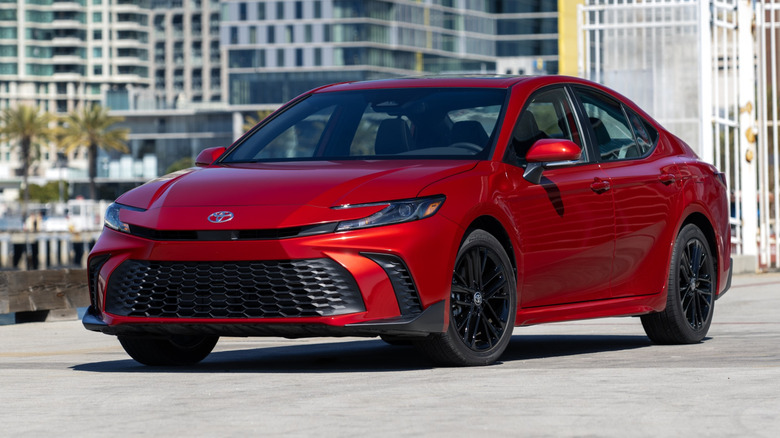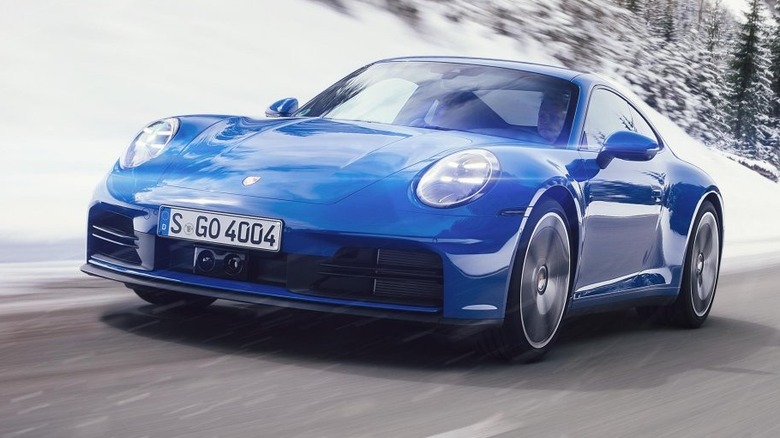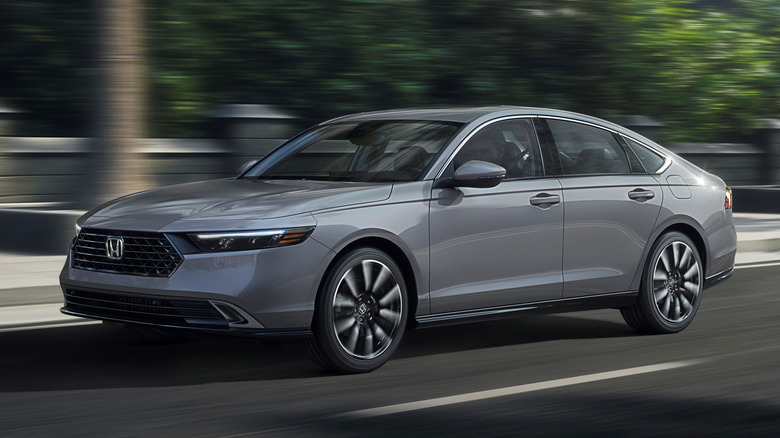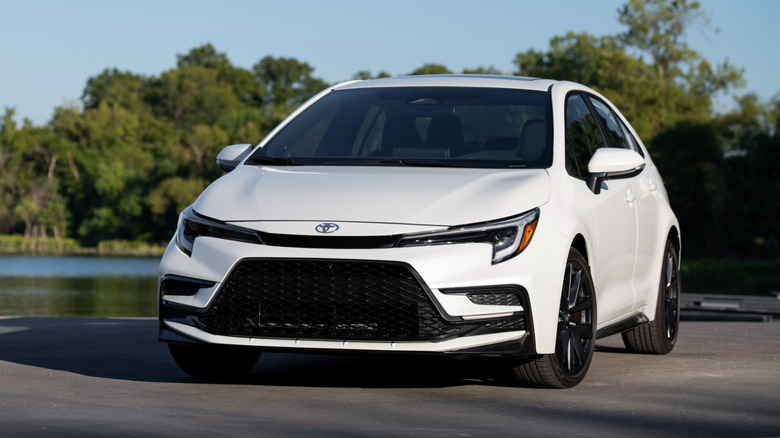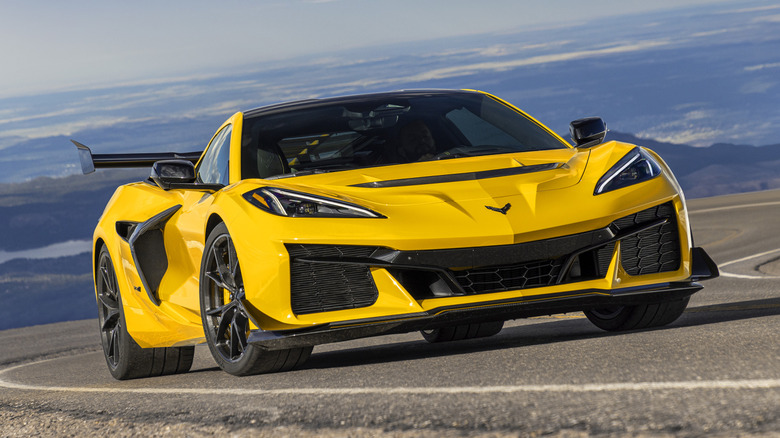10 Cars With Great 5-Year Resale Value
Unless you happen to be buying an ultra-limited exotic car from one of the world's most exclusive brands, any new car will lose a portion of its value as soon as it's driven off the dealership lot. It will then continue to fall in value over the following years as it gets older and racks up miles on its odometer, although the rate at which the car loses value can vary significantly between models. According to KBB, most new cars will only retain around 45% of their value after their first five years on the road, but high mileage, poor condition, or less desirable cars will be worth less.
On the flip side, a more desirable car in good condition and without an excessive amount of miles on the clock will usually be worth more than average after its first half a decade. The most highly desirable cars usually fall into one of two categories: either they're well-known, affordably priced models with a strong reputation for reliability, or they're highly desirable sports cars that have significant appeal among enthusiasts. These 10 models are among the best performing cars on the market, with each one forecast to retain over 50% of its value after five years.
The list here only includes passenger cars and sports cars and doesn't include SUVs. But, if you're looking for a rundown of the highest resale value SUVs on the market, then we've got you covered there too.
Toyota Crown – 54.7%
It might be a relatively new addition to the lineup, but the Toyota Crown is already one of the brand's top performing cars when it comes to resale value. It hit dealerships for the 2023 model year, and shortly after launch, we spent some time putting the car through its paces. We came away impressed by the car's Hybrid MAX powertrain and unique styling, although we weren't quite as sold on the cabin design, which felt uninspired compared to the rest of the car. The Crown is far from the cheapest model in Toyota's lineup either, with prices starting from $41,440 for 2026. Step up to the top-spec Platinum trim, and you'll need to shell out at least $54,990.
Top-spec Crown models command prices nearing Lexus territory, but arguably none of the current generation of Lexus sedans look as interesting as the Crown. Neither do any Lexus sedans offer such high resale values — in fact, only two of its models boast resale values over 50%, and both are SUVs. The Crown offers better predicted resale value over five years than any Lexus model, with KBB estimating that it should hold on to around 54.7% of its original sticker price over that time period.
Nissan Z – 50.5%
High demand and low supply levels at the Nissan Z's launch saw dealers hit cars with significant markups, but by the end of 2024, availability had drastically improved and the Z ended up with one of the highest inventory pile ups on the market. Despite its rollercoaster inventory levels, KBB still predicts that a new Z should retain a high percentage of its initial value after five years, with 50.5% value retained on average. That's great news for owners, and slightly less great news for cash-conscious buyers looking to score a bargain used example.
A new base-spec Z is relatively attainable in sports car terms, as it starts from $42,970 for 2025. The Performance trim, which adds niceties including leather seats and a Bose audio system, comes at a notable premium, starting from $52,970. If you're really dedicated to squeezing the maximum performance out of the Z, the top-spec Z Nismo is available for a starting price of $65,750.
In our review of the Z Nismo, we found it to be great fun on the road, but also far too impractical to serve as a daily driver for most people. The premium features available in the Performance arguably make it the best for everyday driving duties, but no matter which trim you pick, the Z remains a solid choice for maximizing resale value.
Honda Civic – 50.6%
While Honda Civic buyers will be scoring precisely zero points for originality — the brand sold more than 220,000 examples in the U.S. in 2024 alone — there's a good reason why so many buyers gravitate towards the car. It's affordably priced, supremely practical, and has a reputation for reliability. Those qualities are only reinforced by the makeover that the Civic received for 2025, and as a bonus, the update also makes the car more enjoyable to drive to boot. Of course, anyone looking for peak driver enjoyment should check out our review of the Civic Type R, but they'll need a suitably generous budget for that one.
The Type R starts from $45,895 for 2025, while the base-spec Civic sedan is almost half the price, at $24,250. No matter whether you go for mild or wild, the Civic should keep a higher level of its initial sticker price than the average car in its segment, with KBB estimating a value of 50.6% after five years.
Toyota GR Supra – 51.4%
Manual sports cars are a dying breed, but for now, a few remain for sale. The Toyota GR Supra is one of the last survivors, but it won't be around for much longer. The brand has confirmed that the GR Supra will be discontinued in 2026, alongside the BMW Z4 with which it shares many of its parts. A commemorative Final Edition, pictured, is available for the 2026 model year, with a starting price of $67,950. If that seems steep, then the base-spec 3.0 trim is also still available, and starts from $56,900.
The GR Supra's association with the Z4 roadster has been a controversial one since its inception, but it seems like that controversy hasn't impacted the Supra's resale value. At a KBB-estimated 51.4% of sticker after five years, it comfortably beats sporty models from a number of other big brands.
It may well be that, in the future, the GR Supra becomes a sought-after collectors' car, a symbol of a bygone era much like its predecessor. While it's impossible to accurately predict what its value might look like in twenty or thirty years, buyers can at least for now rest easy in the knowledge that, in five years, the GR Supra will retain over half of its original value.
Subaru WRX – 50.5%
Alongside Toyota, Subaru is another Japanese automaker with a notable fanbase and plenty of iconic models in its back catalog. The latest WRX is unlikely to rise to the same levels of reverence as the brand's earlier rally-inspired sedans, but it's a genuinely enjoyable car nonetheless. The 2025 Subaru WRX tS offers electronic dampers and a manual transmission, while its 271 hp makes it adequately powerful for spirited backroad driving. It starts from $45,705, while a base-spec WRX can be picked up from $35,750.
It certainly isn't the most refined sedan on the road, and its mpg figures are far from exceptional, but WRX buyers aren't looking for either of those things. They'll be buying one for the brand's rallying heritage, its capability in the mud and gravel, and its attainable price. The latest generation delivers on all those fronts, and as a result of that it should remain in demand on the used market, retaining a predicted 50.5% of its value over five years.
Toyota Camry – 52.2%
The latest generation of the Toyota Camry is new for the 2025 model year, sporting a standard hybrid powertrain, revised interior tech, and a redesigned cabin. The V6 engine has been discontinued, and along with it, the TRD trim has also disappeared from the lineup. The trade-off is that 2.5-liter four-cylinder hybrid powertrain is now available across all trims, including both front-wheel drive and all-wheel drive variants. The electrification also adds a little low-end boost to the car on takeoff, although make no mistake, this is still a car focused on efficiency rather than driving fun.
As a reliable, sensible daily driver, it's hard to fault the Camry, and that's why it has continued to be a strong seller for so many years. Toyota has never altered the car's underlying formula too much, which has helped keep its name a familiar one among buyers looking for a reliable used sedan. That, in turn, has helped keep the resale value of used examples higher than other rival affordable sedans, with KBB's latest data predicting that the Camry should retain around 52.2% of its resale value after its first half decade on the road.
Porsche 911 – 52.4%
A key part of the Porsche 911's appeal is its versatility. When asked, it can tear down backroads or hit license-shredding speeds in a straight line, but the rest of the time, it's a comfortable everyday cruiser. This has long made it a favorite among buyers looking for a daily drivable sports car, although Porsche also offers a variety of models catered towards drivers who want a weekend track day toy. At the pinnacle of the current track-ready 911 lineup sits the GT3 RS, which costs $241,300, almost double the $127,700 starting price of the base-spec Carrera, which itself has a long list of extras available to push that price higher.
In percentage terms, the 911 holds its value better than a Toyota Camry, though with such high asking prices, buyers will still be losing a lot of value in dollar terms. According to KBB, a new 911 should retain 52.4% of its starting price after five years. Much like with the other models listed here, that average encompasses all trims of the model, and rarer 911 variants may well retain an even higher percentage of their initial value over that time frame.
Honda Accord – 51.2%
Alongside the Civic and CR-V, the Accord is one of the best-known names in the current Honda lineup. The nameplate has been around for decades, and the sedan variant's been in production since 1979. By 2020, Honda had sold over 14 million examples of the car in the U.S. alone, and that figure continues to increase, with almost 150,000 sold in 2024. Long-running nameplates like the Accord have the advantage of heightened buyer awareness — most people are likely to know of a friend or family member that has owned or driven one over the decades.
Of course, that awareness counts for nothing if the car didn't leave a positive impression, but across the Accord's 11 generations, it has built up a consistent reputation for reliability, practicality, and efficiency. The latest generation, unveiled for the 2023 model year, builds on that reputation, offering both hybrid and non-hybrid powertrains and a competitive starting price of $28,295 for the base-spec LX trim. That consistency helps the Accord stay popular with used buyers, earning it a predicted 51.2% value retention rate over five years according to KBB.
Toyota Corolla – 52.3%
There are plenty of buyers who don't care much for the latest tech or the most interesting design, and are instead focused on buying the most reliable, efficient car they can for the cheapest price. For those buyers, the Toyota Corolla sedan remains a natural choice. It's available in both hybrid and non-hybrid form, with both options being appealing and inexpensive. For the 2025 model year, the non-hybrid Corolla LE starts from $22,325, while the Hybrid LE costs at least $23,825.
From there, Toyota offers the SE, FX, and XSE trims, each of which add extra features and tech for a modest premium. The lineup is topped by the Hybrid XLE, which offers a power moonroof, heated front seats, and an optional JBL audio system. The Corolla's affordable pricing when new, alongside its reputation for reliability, mean that buyers won't lose much when it's time to upgrade. According to KBB, a new Corolla will keep 52.3% of its value after five years, putting it slightly ahead of the similarly affordable Honda Civic.
Chevrolet Corvette – 61.0%
Comfortably beating most other sports cars — and indeed most other cars on the market — for value retention is the Chevrolet Corvette, which KBB predicts should hold onto 61% of its sticker price after five years. Driving the base model Corvette, it's easy to see why it holds onto its value so well. It looks more expensive than its $70,195 starting price suggests, and its mid-mounted V8 offers performance levels more akin to a supercar than the average sports car. In our review of the 2025 Corvette, we found the interior quality to be a little short of the best in its class, but it wasn't enough to distract from the car's overall charms.
Further up the Corvette's range, it becomes significantly costlier, with a top-spec Corvette ZR1 going for at least $175,195. At that price point, it has an increasing amount of more exotic competition, but in base-spec form, it's tricky to beat the value that the Corvette offers. Evidently, used buyers tend to agree.
